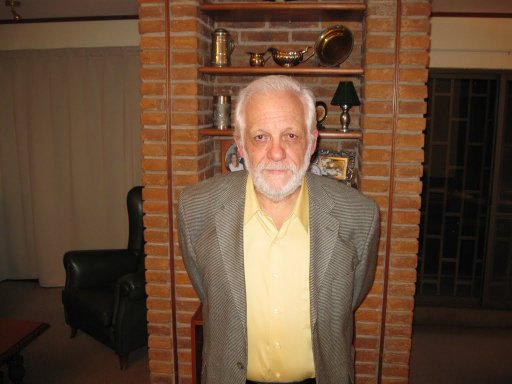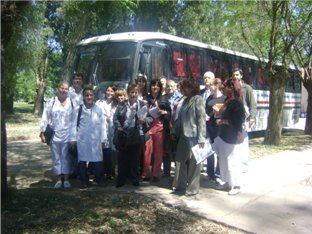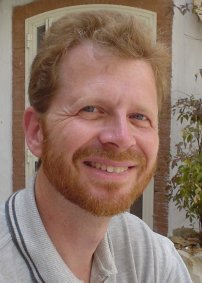IAHPC Board Members’ Reports
Programa Argentino de Medicina Paliativa-Fundación FEMEBA
By Roberto Wenk, MD

The situation in Argentina
Despite the progress made during past decades, availability and access to palliative care (PC) is still inconsistent and poorly coordinated in Argentina. It is estimated that only a small fraction of patients (5 – 10 %) that need PC receive adequate treatment.
PC is provided by teams of professionals from various disciplines along with many volunteers. Most teams consist of physicians and nurses, working on a part-time basis, that assist patients in an office, at home, and / or in hospital. There are only a few multidisciplinary teams that are exclusively dedicated to provide 24 / 7 care. In general, patients with advanced life-threatening diseases and uncontrolled symptoms are hospitalized in acute care institutions.
Our program
The Programa Argentino de Medicina Paliativa-Fundación FEMEBA (PAMP-FF, http://paliativo-femeba.org/ ) is a not-profit non-governmental organization that promotes PC nationwide. It began in 1983 in LALCEC (Liga Argentina de Lucha contra el Cáncer) San Nicolás, Buenos Aires, Argentina, and since 1994 the FEMEBA Foundation is responsible for its continued development.
The following timeline shows how progress followed phases of growing complexity and activity:
- November 1994. Workshops were offered to health professionals; a hot line was developed for patients, families and health personnel; technical booklets and audio-visual materials were produced and distributed.
- February 1996. A Palliative Care Unit was started at Hospital Tornú, Buenos Aires city. It is a unit in a dedicated building with a waiting room, 2 offices, 5 bedrooms for up to 6 inpatient beds, and an area for family stays and/or team meetings.
- February 2001. PACI (Programa de Asistencia Integral Continua = Continuous Comprehensive Caring Program), was started at Hospital B. Sommer, General Rodriguez, Buenos Aires province. It is a regional program and has a PC unit in a dedicated building with a waiting room, 2 offices, 12 bedrooms for up to 16 inpatient beds, and an area for family stays.
- January 2008. Institutions, or services, with known demonstrable activity in PC joined the PAMP-FF-- the first was the PC service at Hospital B. Houssay, Vicente López, Buenos Aires province.
- During 2012 two more services from other cities will join the program.
Approximate total number of people making up the teams mentioned above are: 54 health professionals (physicians, nurses, social workers, psychologists, etc.), and 40 volunteers.
The public health system is responsible for most of the human and all the material resources needed for the care of patients and families in each institution. The FEMEBA Foundation pays, or supplements, the wages of 19 people that work in the various teams.
Activities
The current primary activities of the PAMP-FF are:
- Assistance: All services provide outpatient care, day care, inpatient care and home care. Everyone provides free care to 200-300 new patients each year; 95 % are cancer patients, 20 – 30 % are permanently in treatment; the average length of treatments is 97 days. Service is 24 / 7; nursing care is provided during the 24 hours; medical care is available Monday to Friday from 9 am until 5 pm; on Saturdays, Sundays and holidays only medical visits are available.
- Community education: provides for increasing awareness about the benefits of PC, recruiting and training individuals to work in PC.
- Research: consists of demographic and epidemiological studies; analysis of the teaching activity; collaboration in international studies.
Time Line of professional educational activities:
- Since 1998, there have been clinical rotations for health professionals. Every service receives 1 - 3 students each month; average rotation duration is 20 hours.
- Beginning in 2001, there have been annual training courses for volunteers in PC; 28 hours in length.
- Starting in 2002 there have been training programs for physicians; 2 years duration.
- Since 2004 there are residency programs for physicians, nurses and psychologists -- 3 years duration.
- Starting in 2005, university affiliated courses for physicians, nurses and psychologists are offered annually; 180 hours length, 60 % clinical activity. Also there have been on-line PC courses for physicians and nurses (with optional bedside practice); four months length; two per year.
- Beginning in 2006 there have been PC modules for oncologists at Universidad Católica Argentina, Buenos Aires city. 120 hours duration with 25 % clinical activity.
- Since 2008, Cursos en colectivo (CeC, bus-rounds) offers iinterdisciplinary theoretical and practical activity for primary care physicians and nurses; 1.5 days (14 hours) length; 3-4 per year. This activity takes place in a bus -"bus-rounds" – while visiting the patients and moving between the places where they are – home or institution.

- Since 2010 there has been an elective called "Palliative Care” for students in fourth, fifth and sixth years of Medicine in Universidad Austral, Pilar, Buenos Aires province. 24 hours duration; 4 hours of clinical activity.
- Planned for 2012 is a mixture of teaching activities -- on-line and bus rounds -- to support primary care providers.
Roberto Wenk, MD
Director, Programa Argentino de Medicina Paliativa – Fundación FEMEBA (Medical Federation of the Province of Buenos Aires).
Dr. Wenk is also the Chair of IAHPC and his biography may be found at http://www.hospicecare.com/Bio/wenk.htm
Availability and accessibility of opioid medications in Europe
By Professor Dr. Lukas Radbruch

I have just returned from a workshop in Bukarest (or Bucharest), where we met with people from Estonia, Latvia, Lithuania, Poland, Hungary, Slovakia as well as guests from the Ukraine. The purpose of this workshop was to improve access to opioids in these countries. This is part of the ATOME project (Access to Opioids Medications in Europe) funded by the 7th Framework Research Programme of the European commission. The World Health Organisation and the European Association of Palliative Care (EAPC) are partners in ATOME (www.atome-project.eu). The workshop brought together people working in palliative care, pain management, harm reduction as well as government representatives.
Similar to previous ATOME Workshops, I was intrigued with the interest and engagement that I observed in all participants, as well as their sincere wish to improve the treatment of suffering patients. It also became clear during the presentations that progress had been made in recent years because of palliative care development and removal of some legal barriers. However, even if availability to essential opioids is granted in nearly all countries, the lack of knowledge and acceptance of myths, without a basis in fact, about opioid usage by health care professionals, including physicians and patients, still impedes access to adequate treatment using opioids. Opioids may be available, but they are not accessible (and often not affordable as well).
Changing attitudes may well be more difficult than making opioids available in a country. Changing attitudes is a process that requires an ongoing commitment which is why there are several organisations that are active in Eastern Europe and Central Asia to support local groups in this work. The EAPC has set up a newsletter for Eastern European and Central Asian countries that is available in English and Russian, and more recently there is also a Russian website (www.eapcspeaksrussian.eu).
As there is little information about how many people would prefer to access information in Russian, rather than English, as well as which countries would require Russian information and training, EAPC has just started a survey using an information needs assessment in the Eastern Europe and Central Asia. Results from the online survey are expected in 2012 and will help to develop information packages that are tailored to the needs of these countries. I hope that we can use this information to also improve participation from Central and Eastern European countries in the next EAPC congress in Prague in 2013. The development of palliative care has been incredibly rapid in some Eastern and Central European countries, and it would be great to hear about these developments in Prague.
Palliative care professionals face a number of barriers in these countries, such as the need to register and participate, low salaries or visa procedures, and only limited support with bursaries and administrative help. However, I would like to call upon national associations in Central and Eastern European countries to help us with the advertising of the congress in Prague, and with the translation of informational materials and the dissemination of them among their members.
The EAPC congresses are renowned as good places to meet colleagues, exchange information and get updated with the latest developments in palliative care.
You have so much to say, please come to the congress and tell the world!
Address for Correspondence:
Prof. Dr. Lukas Radbruch,
Klinik für Palliativmedizin, Universitätsklinikum Bonn
Sigmund Freud Str. 25, 53127 Bonn
Zentrum für Palliativmedizin, Malteser Krankenhaus Bonn / Rhein-Sieg
Von Hompesch Str. 1, 53123 Bonn
[email protected]
Professor Radbruch is a member of the IAHPC Board of Directors and his biography may be found at http://www.hospicecare.com/Bio/lukas_radbruch.htm
|

